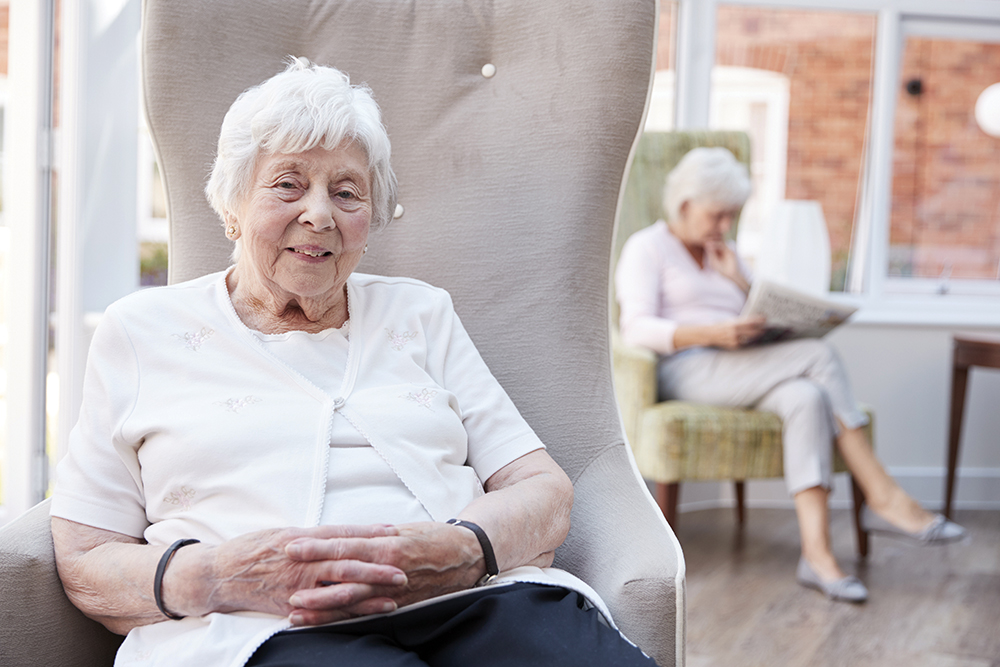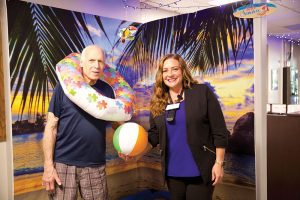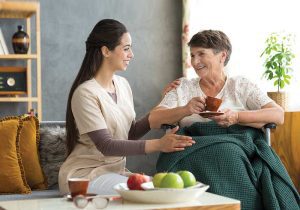By Darla Price Heath, Community Relations Coordinator, Evergreen Senior Living
Charles and Alice were married at age 18. After 64 years of marriage, Charles unexpectedly passed away. Alice not only lost her husband, but her best friend. She felt guilty about not realizing he was so sick. In the few days following his death, Alice was busy contacting people, making final arrangements and visiting with family who had come in from out of town. After the family left, she realized it was the first time in her life she would live alone. Her and Charles had considered moving to assisted living the previous fall but decided to wait and spend one more summer at home. Thinking of being alone, caring for the house and trips to the doctor were overwhelming for Alice.
The days after experiencing the loss of a loved one are filled with a flurry of activity and decisions. Family and friends need to be notified, and there are decisions regarding a funeral or memorial service to be made. During this time, many people feel numb and later describe the days following their loss as a blur. For older adults, such as Alice, who have lost a spouse, there are too many emotions to describe. Some days are good, and some days aren’t.
Family, friends, and the community want to be present, to be there for you in your time of need. It’s comforting to receive cards, phone calls, food and visits. After a while though, visits are less frequent, and there are fewer cards and letters in the mail. The phone isn’t ringing like it was.
Following a loss, people often don’t feel like getting out and back into a routine. Isolation leads to loneliness, depression and a decline in health for the person grieving. Once the surviving spouse is alone the magnitude of their loss is realized.
Feelings of loneliness and isolation are recognized as having physical, mental and emotional consequences. Social isolation and loneliness are associated with increased mortality in older adults, dementia, increased risk for hospital readmission and increased risk of falls.
However, research consistently shows that feeling connected and involved benefits both mental and physical health.
Losing the companionship of a spouse or partner affects sleep patterns, nutrition habits, immune systems and increases stress hormones. One recent study found that isolation increases the risk of heart disease by 29 percent and stroke by 32 percent.
Changes in diet and nutrition affect one’s energy and zest for life. Eating patterns are also impacted because cooking for one and eating alone are less inviting. If couples walked or exercised together, motivation for being active may be lacking.
Had Alice and Charles made the move to assisted living, Alice’s experience following Charles’ passing may have been much different. Being part of a community prevents isolation while offering the privacy of apartment-style living.
Meals are available three times a day. You will not be faced with eating meals alone unless you choose to. Eating with others is much more enjoyable, encourages healthy eating, and increases socialization. Communities offer daily activities and exercise, which greatly impacts health and vitality.
The greatest defense in combating social isolation and loneliness is being part of a community, whether that is an assisted living community, a church community, a grief support group or a religious community. Others in these communities have experienced losses and will have a great deal of empathy. These kind people will be there for you when you need them most.
Whether you are in your own home or a senior living community, grieving is a process that is different for everyone. Taking time to mourn and working through the grieving process are very important in dealing with emotions, accepting loss and learning to live life without that special person. If you find yourself having difficulty with isolation after a loss, call a local assisted living community or your physician for a list of support services that will help you through this difficult journey.
Evergreen Senior Living in Normal has two locations to serve seniors: Evergreen Place Assisted Living and Evergreen Village Supportive Living. Both communities allow seniors to live more independently longer, bridging the gap between independent living and a nursing home. Seniors receive personalized support services in the privacy and security of their apartment within our community. Services include medication management, personal assistance with activities of daily living, housekeeping and laundry services and a variety of food service options. Each community has different apartment floor plans available and offer multiple options for payment. For more information, please call 309-834-2603.
For additional informative and inspirational articles please visit 50 Plus News and Views Bloomington/Normal online edition today.











